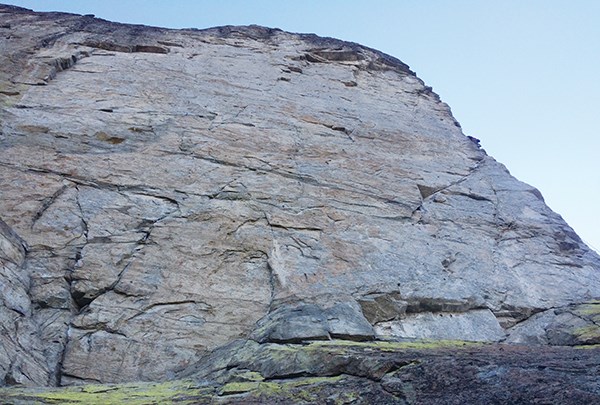I’m hanging, tied into a rope, 40 metres off the ground. As I glide soundlessly down, I watch a myriad of handholds, footholds, quickdraws, movements and sequences scroll by as if on a Lazy Susan in a Vegas buffet.
I spin slowly in midair and see Skaha Lake, then the Great White Wall, then the lake and so on. There is so much blood and lactic acid in my arms that I doubt very much that I could form a coherent thought. I’d trained hard and with more thought this winter. Where, then, had I gone wrong?
Wolfgang Gullich, the German sport climbing visionary, once said, “Strength only supplements technique.”
A generation later, U.K. climbing protégé Ben Moon uttered his controversial statement, “Technique is no substitute for power.” With these statements, training for climbing started to gain momentum and here we are today, with gyms full of highly trained, incredibly strong boys, girls, women and men, many of whom can’t or don’t make the leap and apply their talents to climbing rock outside. Why can’t they translate their strengths to outdoor accomplishments?
Well, for starters, some just don’t give a thought or care to the outdoor activity of rock climbing in any of its fine forms. It’s for these people that I scratch my head but tip my hat and say that this discussion has nothing to do with you. Carry on with your beastly hard climbing indoors.
But the others, including me, have all been caught in the “bigger faster stronger” ethos of our time. We want big performance gains as fast as possible through high-intensity training drills, activities and contraptions so we can all get better and keep up with Chris Sharma. Right? There is a general attitude that if you can get stronger, then that will vault you past a lot of those intermediary steps and you will arrive at climbing hard more efficiently.
What this attitude misses out on is the kernel of truth, the nucleus of improvement within the two statements mentioned above. In Gullich’s, you can read as plain as day that strength gains only enhance and bolster a solid foundation in technique. What technique? Everything, from movement, to efficiency, to resting, strategy, tactics, preplanning, training and everything else that has ever been done to improve one’s chances at a successful ascent. With Moon’s comment, you see some of that youthful exuberance shining through as one of the most talented and hard-working rock climbers ever cheekily throws down that you can get so powerful you can overpower your difficulties. But, that’s not really what he’s saying. Moon’s back story is that power and technique are different tools available to the climber, and that they aren’t mutually exclusive. After you have mastered movement, the next appropriate tool to reach the next level is applying your new strength gains over less and less time. Power.
Where am I taking you with this? As I lowered off a route in the Skaha Bluffs Provincial Park in Penticton, I realized, for maybe the fourth time in 22 years, that climbing is a movement-focused, skill-based activity in which taking the easiest way – making it as efficient as possible – is absolutely central to success. If you want to climb well outside in a discipline, then make sure you’re varying your training enough to account for what you’re finding on your outdoor projects and get outside – period. Strength gains need to be translated and applied to your hopefully broad experience base for them to have any real effect.
Take a page from the older generation, fill in your pyramid earlier this season and scrap the next four weeks of campusing if the weather’s sunny. Happy climbing.




